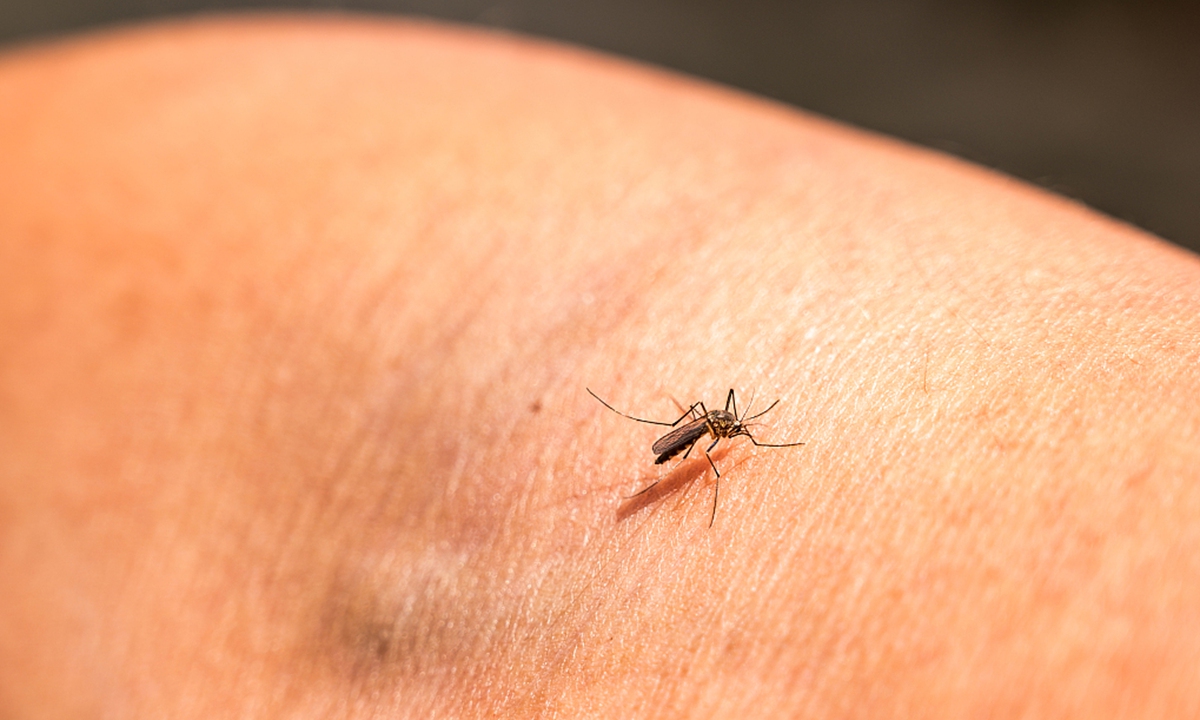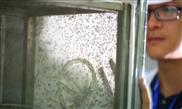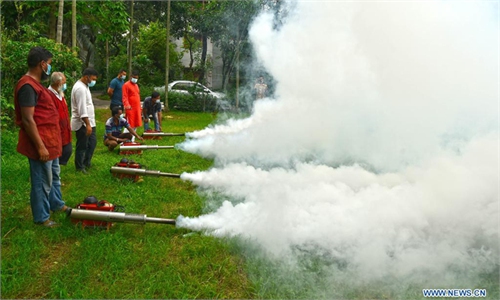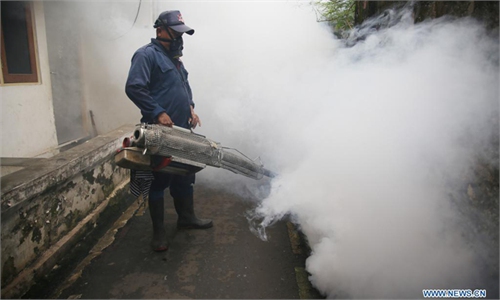
A female Anopheles mosquito Photo: CFP
Highly recognized Chinese researchers have come one step closer to bring deadly mosquito-borne diseases under control by applying nuclear technology in eradication projects. The leader of the research team said this is the only modern biological technology that has the potential to eradicate specific mosquitoes in a region and control the transmission of diseases.
The anti-mosquito technique uses radiation to extinguish the reproductive capacity of male mosquitoes. Once released, these sterile males will mate with wild females without producing offspring.
According to local media, the International Atomic Energy Agency praised the anti-mosquito research by the Nuclear Technology Research and Development Center of the China Atomic Energy Authority (CAEA) , which was founded in partnership with the Sun Yat-sen University in 2020.
As an example of green application of nuclear technologies, the sterile mosquito technique has strong and long-lasting effectiveness, without chemical pollution harm to other animals or drug-resistance in mosquitoes, according to the director of the center, Wu Zhongdao, the Shenzhen Special Zone Daily reported.
Wu noted that this is the only modern biological technology that has the potential to eradicate specific mosquitoes in a region and control the transmission of diseases.
The World Health Organization estimates that mosquito-borne diseases kill over 700,000 people every year.
South Africa has suffered from severe outbreaks of malaria which have caused numerous deaths. Zhang Dongjing, research fellow of the center, went to Johannesburg in 2020 to provide guide and support on the sterile mosquito technique to the country's national infectious diseases center. The technique will have an effect on reducing morbidity, according to Zhang.
In addition to the CAEA's research center, the Sun Yat-sen University also established a "mosquito factory" to massively produce sterile mosquitoes. With an expected output of 40 to 50 million sterile mosquitoes per week, China can make greater contributions in controlling mosquito-borne diseases in developing countries and solving international public health care challenges. The university also plans to set up three to four anti-mosquito demonstration sites in the Guangdong-Hong Kong-Macao Greater Bay Area and set up overseas training bases, according to a local media outlet.




